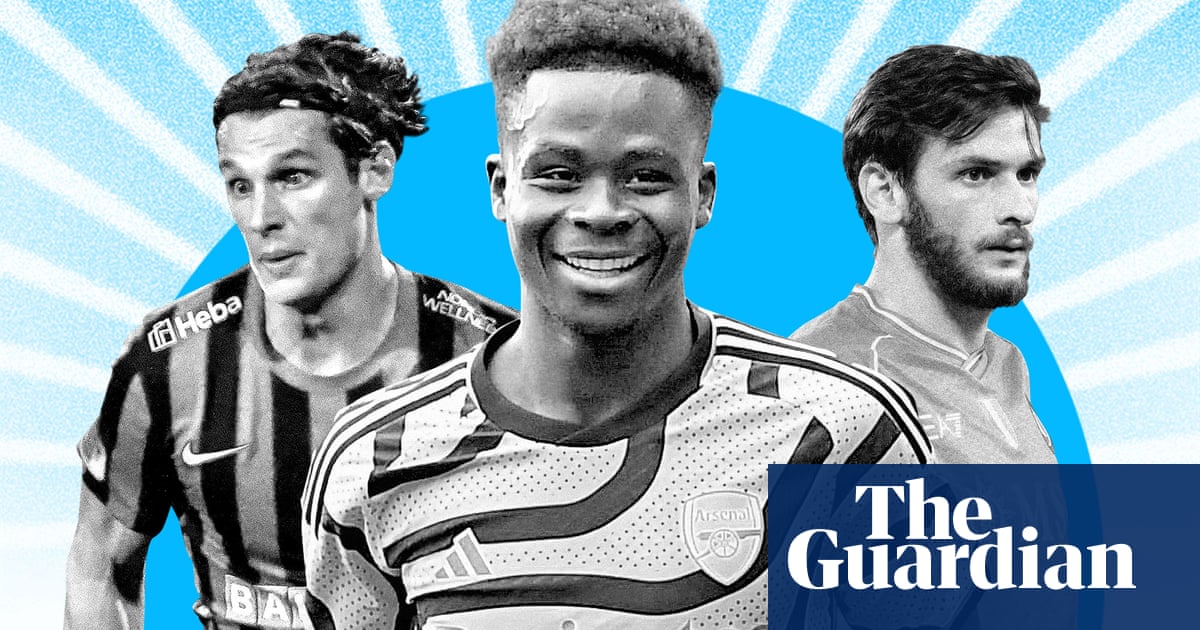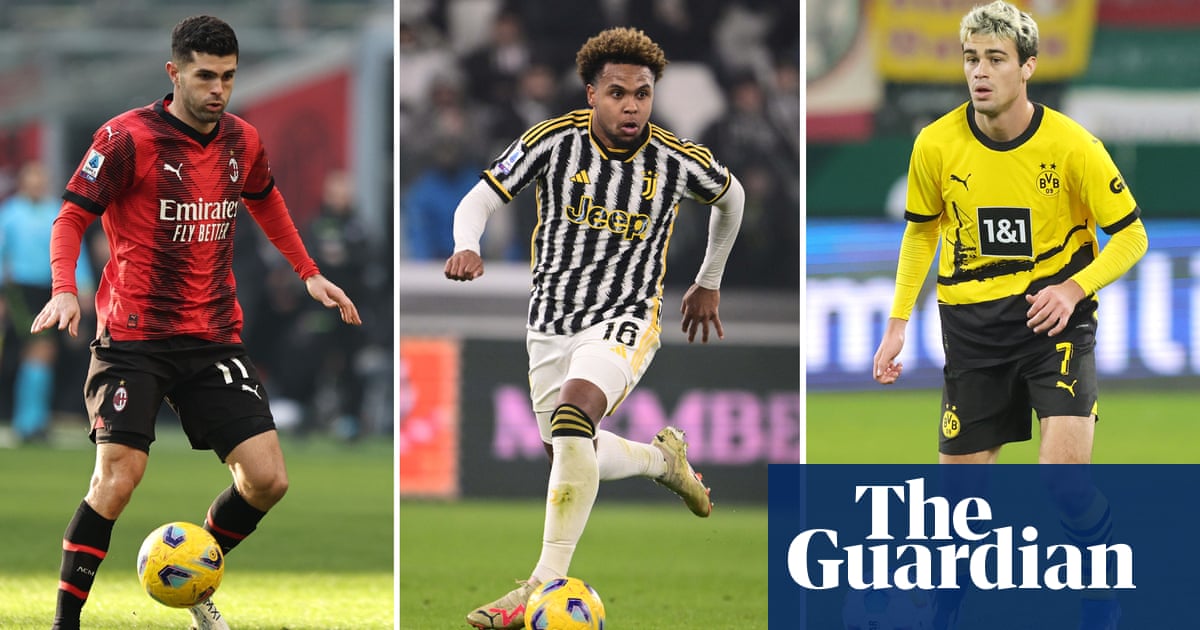
It is the time of year when we check in on the Next Generation players we picked in 2018 to follow for five years, to assess their progress amid success, setbacks, injuries, trophies won and transfers made.
Next Generation started in 2014 with the aim of showing the difficulties that even the best prospects in the Premier League (we pick one from each club at first-year scholar age) and the rest of the world (we choose 60 born in a specific calendar year) face on their way towards the top.
As in life, no one’s journey is the same. In 2018 Sweden’s Kevin Ackermann made the list, with Olof Lundh writing:
A defensively minded midfielder who is incredibly strong (he used to be a wrestler) but with an excellent touch to go with his physicality. Made his debut in the Swedish top flight as a 16-year-old last year and captained Sweden as they reached the quarter-finals of the Euro Under-17 tournament in England this summer. Has taken an unusual path to the top. He left the top-flight side IFK Göteborg for sixth division Angered MBIK as a 14-year-old as he felt that he was not getting the right support for his football education. Another Gothenburg club, Häcken, snapped him up in 2017 and he made his senior debut that season. Has signed a new contract with the club from Hisingen until 2021 despite interest from Real Madrid and Benfica and trials at both Manchester clubs.
Ackermann seemed destined for the top – the question was just in which country he would play – but having opted to join Fiorentina in Italy, he and his family got the shock of their lives. A heart defect was spotted during the medical and, after months of uncertainty, in April 2019 he had an operation, not dissimilar to the one that Nwankwo Kanu, the then Internazionale and Nigeria forward who later joined Arsenal, had to have in 1996. The operation was a success but he then had to start all over again, not exceeding a heart rate of 140 during sessions in the beginning and then simply walking 20,000 steps a day.
A career path that once seemed obvious was now shrouded in doubt, an incredibly difficult situation to be in for an adult, never mind a teenager. As he returned to first-team training at Häcken in August 2019, he said: “I am so happy to be back. I was down all the way to the bottom but I’ve learned a lot and have got to know myself better as a person and I am grateful for that.”
A few months later he joined second-tier Örgryte and rebuilt his football life from there. When we checked in with Ackermann in 2021 and 2022 he was still at the Gothenburg team and it felt as if he was settled there. We have to remember that playing second-tier football in most countries, Sweden included, is an incredible achievement considering all the competition.
We were even more delighted this year when we saw that Ackermann had taken the step back to the top-flight Allsvenskan to represent the Stockholm side Brommapojkarna. “I love Gothenburg as a city and I have lived here all my life but if you stay in your comfort zone then you won’t take the steps you want to,” he told the Swedish newspaper Expressen.
At the time of writing Ackermann has played all league games bar one as BP attempt to beat the odds and avoid relegation and, to us, that is an incredible success story.
Other players on the 2018 world list have had more straightforward journeys to the top, such as Rodrygo (Real Madrid), Takefusa Kubo (Real Sociedad) and Khvicha Kvaratskhelia (Napoli), while some have dropped out of the game. More than a third have played for their national teams.
The selection process for our Premier League Next Generation list straddles two calendar years, with players chosen from the first-year scholar group. In our 2018 group one player stands out: Bukayo Saka.
A once-in-a-generation player, the 22-year-old has already made more than 140 league appearances and broke Arsenal’s record for consecutive Premier League matches when he started his 83rd in a row against Crystal Palace in August.
Hugely impressive stats, but there have also been questions about whether the Arsenal manager, Mikel Arteta, has played him too much and in too many competitions. Saka has struggled with injuries at the start of the 2023-24 campaign, having to come off in the recent games against Bournemouth and Lens. Either way, he is some distance ahead of everyone else on the 2018 Premier League list when it comes to top-flight appearances.
Most of our players from the Premier League list are still playing in England, with only four abroad: Alexandre Jankewitz, Mason Greenwood, Fábio Carvalho and Isaak Davies.
Cardiff City’s Davies, in particular, has got off to a good start in new surroundings, playing on loan for KV Kortrijk in the Belgian top flight. The Welsh forward has two goals in five league games, including the decisive goal in a 2-1 win against Cercle Brugge.
Five of the 20 players are still with Premier League clubs, although two are playing for the under-21 teams (Will Brown at Newcastle and Ryan Astley at Everton). As well as Saka, Tommy Doyle is playing on loan for Wolves this season and Nathan Moriah-Welsh is still with Bournemouth.
Doyle has not yet broken through at Manchester City, the club he was with in 2018, but looks set for a long and successful career. “I am really happy to have joined Wolves,” he has said. “It is a massive club and I like the way the manager wants to play football and the way he sees how I fit into that. It’s a new challenge and I am very much looking forward to it.”
A new season and a new challenge; that is something all of these footballers have in common, wherever they are playing.












